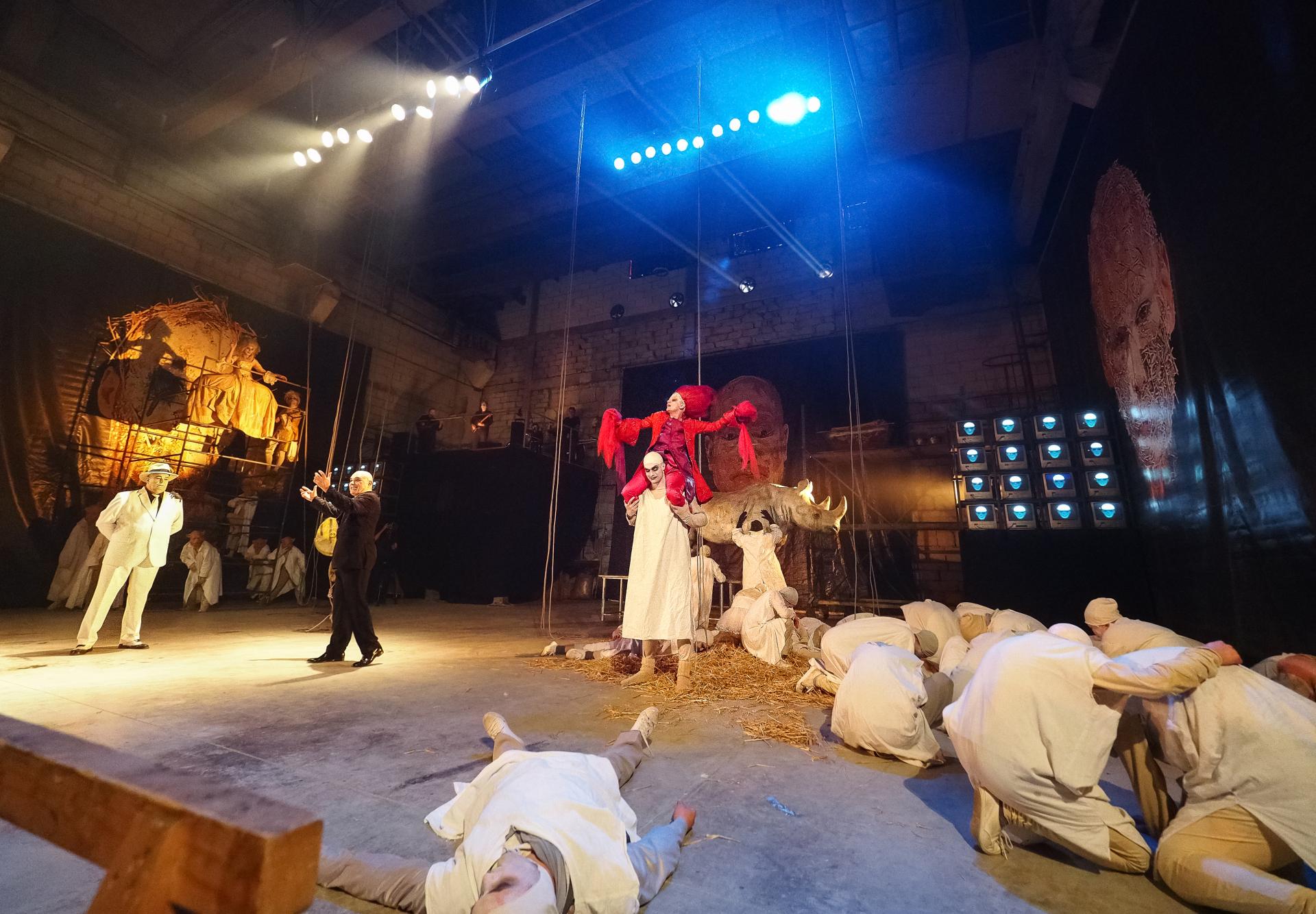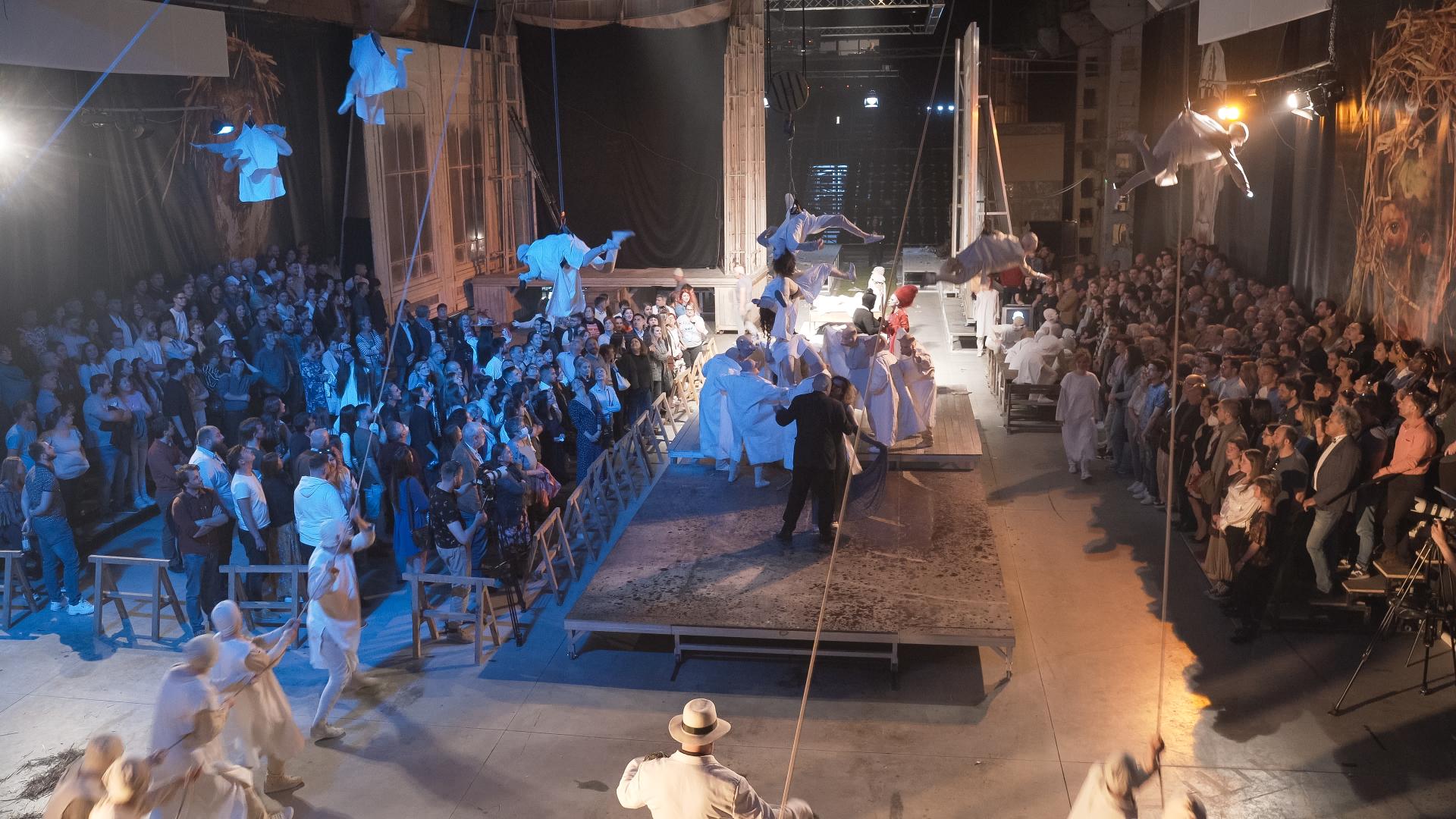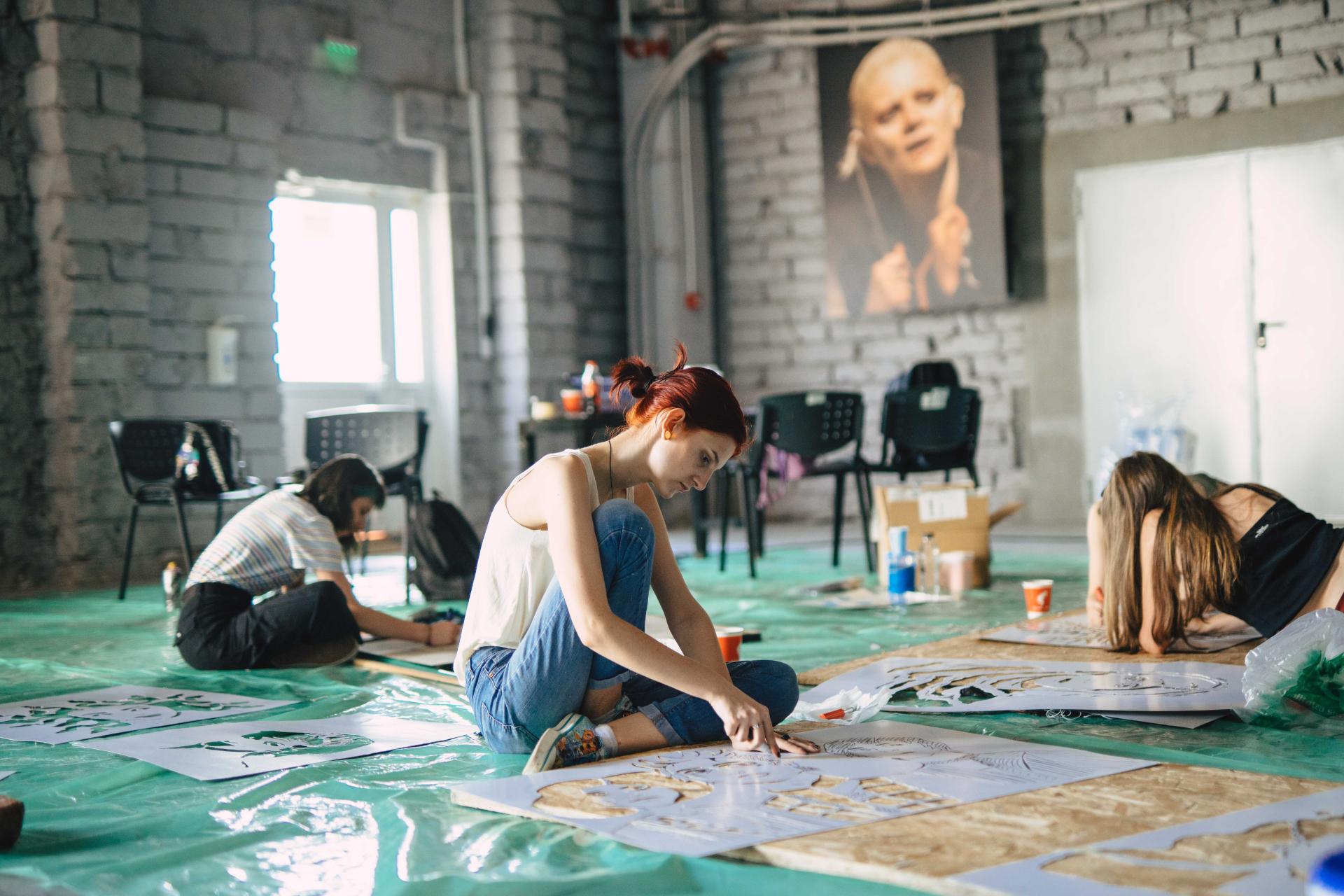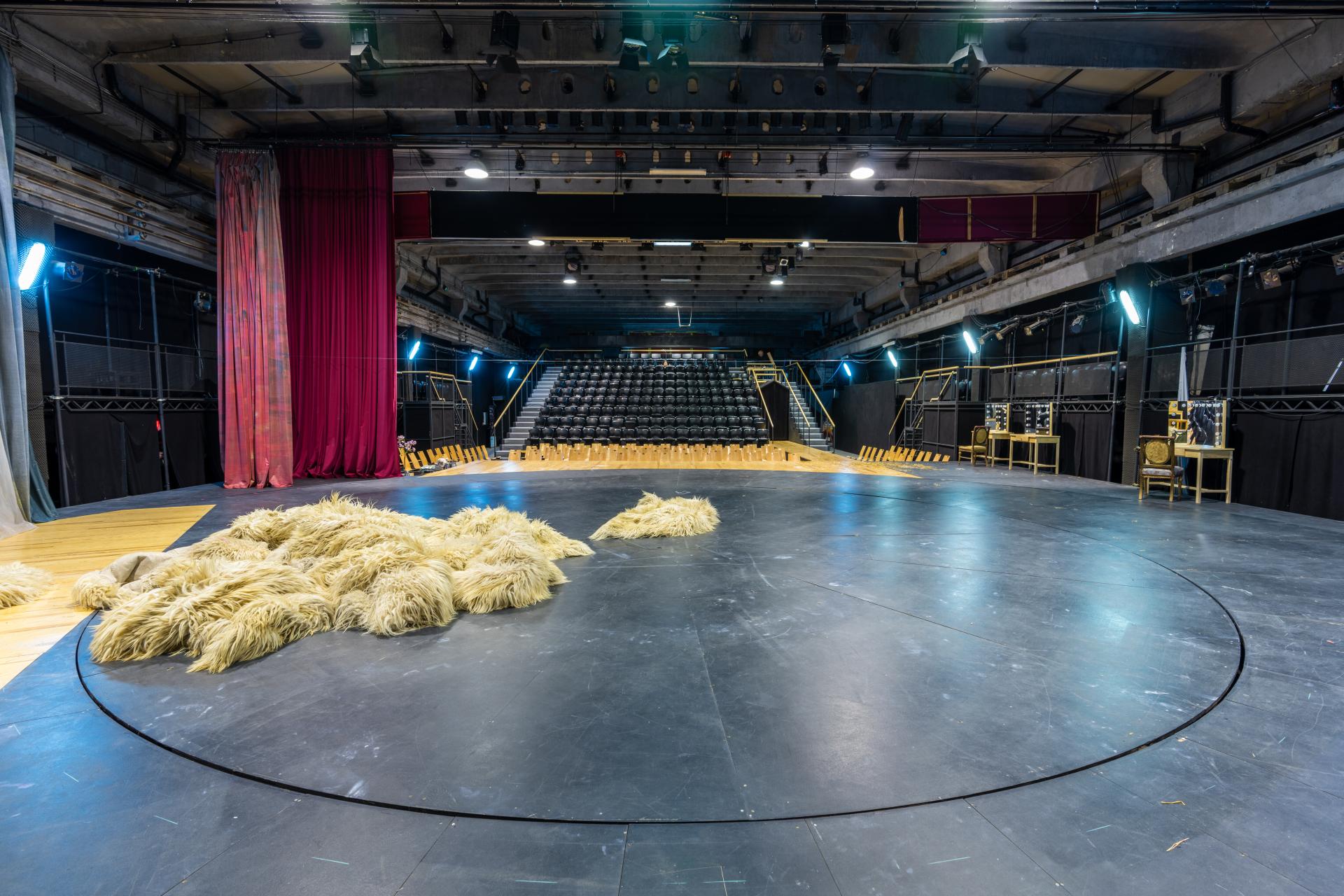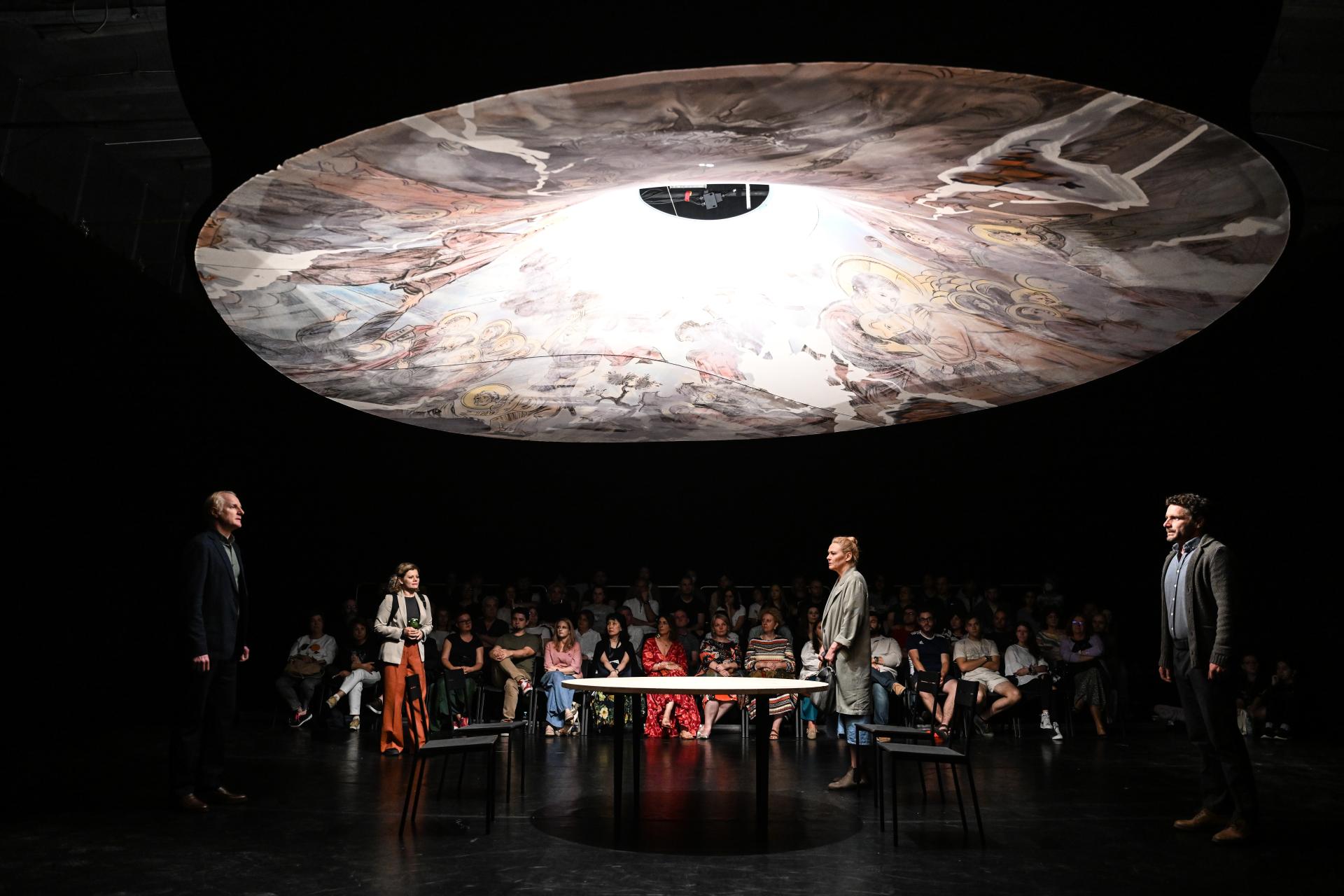FABRICA DE CULTURĂ / THE CULTURE FACTORY
Basic information
Project Title
FABRICA DE CULTURĂ / THE CULTURE FACTORY
Category
Regaining a sense of belonging
Project Description
"The Culture Factory" project began in 2007, with the production of "Faust", directed by Silviu Purcărete. The show was staged in an unconventional space: a disused factory in Sibiu. After its resounding success , we have set out to create more heritage productions, namely: "Lulu", "Metamorphoses" and "The Scarlet Princess". Today, The Culture Factory owns the entire area of halls and aims to develop into the largest cultural and performing arts research centre in Central and Southern Europe.
Geographical Scope
Local
Project Region
Sibiu, Romania
Urban or rural issues
Mainly urban
Physical or other transformations
It refers to a physical transformation of the built environment (hard investment)
EU Programme or fund
No
Description of the project
Summary
From the beginning we wanted to create a space where we could escape the formal label, which would arouse public interest. A space where our audiences can come together for deep, qualitative cultural experiences in which they can find themselves.The Culture Factory started in 2007 with "Faust", directed by Silviu Purcărete. Part of"Goethe in Transylvania" project, its aim was to open the Sibiu European Capital season, subsequently opening the National Theatre Festival that year. The original venue was a 90mx35m factory that allowed 450 spectators. The show was a runaway success, it is still performed today, totalling 270 performances and over 150 artists involved in 16 years. However, the factory was demolished in 2008, and the production was moved to another industrial space, in the same area, 2 other productions have been made under the direction of Silviu Purcărete: "Lulu" (2008), "Metamorphoses" (2009). In 2014 an old factory, Sc Constructii SA, was transformed in a performing arts venue under the name of Fabrica de Cultură/Culture Factory. There were created 2 indoor venues and an outdoor venue along with other required necesities: rehearsal rooms, cabins etc. The halls in which the performances take place have been given the names of the shows, except for the one in which "The Scarlet Princess", created in 2018, is performed - that hall has been named after Eugenio Barba, due to the period in which he created a performance there. In developing The Culture Factory we aimed at increasing and diversifying the audience, attracting tourists by creating weekend events, suitable for a city break and we focused our attention on involving a significant number of artists: acting teams of our theatre (Romanian and German section), students of the theatre faculty in Sibiu and so on. After 16 years, we are proud of the acquisition of the entire area of Construcții S.A. halls (3.4 hectares), 3 indoor playing spaces, 1 outdoor playing space and over 190,000 spectators.
Key objectives for sustainability
From the beggining, the project was intended to be sustainable and durable for a long period of time. An important objective of our project was to use predominantly own resources and avoid redundant consumption of resources. With 3.4 hectares of land and halls under management, we took care to equip these spaces with the necessary facilities for the production of performances (sound, lighting and video projection equipment) and for space heating. The halls themselves have not been renovated and have not undergone any changes, our intention being to preserve as much as possible of their original structure. Part of the site is specially designated for parking cars and bicycles (we have also started a programme to support people who want to come to The Culture Factory by bicycle, offering bicycles for rent at a reasonable price and creating special lanes for them). In addition, we plan to install solar panels on the halls' grounds to provide the entire space with solar energy. The sustainability of the project is also evident in the preservation of the buildings, without the need for demolition and/or reconstruction of other buildings. Of the 3.4 hectares of the estate, 8000-9000 square metres are occupied by these halls, the rest being empty open air spaces. For these places we want to plant trees, to create green spaces for recreation, but also alternative spaces for performances in nature. In this regard we are in discussions with various stakeholders who are willing to invest in the near future to make The Culture Factory a green space, where both our artists and our audience can be surrounded by nature and feed off its energy. We want to contribute to the formation of green cultural spaces, that's why we take on the mission of changing the dominant grey of industrial spaces with the green offered by nature that will surround The Culture Factory.
Key objectives for aesthetics and quality
As previously mentioned, the aesthetics of the halls in The Culture Factory have not been altered. Our aesthetic concept is to bring theatre into unconventional spaces and to make the hermetic, hard, grey spaces of the halls into unconventional cultural spaces and revitalise them through our innovative and large-scale cultural projects. Aesthetically, our aim has been to mix the harsh appearance of the halls with the aesthetics of the performances that are presented in these spaces. From an artistic/cultural point of view, we aimed to create heritage performances that would represent Romania at European and international level. In this sense, the performances in The Culture Factory have travelled around the world, with successes in Frankfurt, Edinburgh, Maribor, Brussels, Budapest, Luxembourg, Tokyo and many others. The quality of these productions is recognised internationally through their presence and appreciation at the biggest theatre festivals in Europe and beyond: Frankfurt „Faust” Festival, Edinburgh Festival, Maribor European Cultural Capital season, Budapest Spring Festival, Tokyo Festival, Europalia, Budapest and Tokyo Cultural Games, Sibiu International Theatre Festival and others. Moreover, the shows produced continue to play sold-out for more than 10 years, with demand for tickets growing steadily. Romanian citizens and not only are interested in discovering the unique cultural experiences offered by The Culture Factory. For which we can only be grateful and for which we continue our mission to bring to our spectators more and more courageous, valuable and bigger productions. We also aim to expand the scope of The Culture Factory as soon as possible in order to support young artists (one of the halls will be entirely dedicated to new/beginning artists/companies) and to harness the potential of artistic research in the field of performing arts.
Key objectives for inclusion
There are no stairs in the Culture Factory halls, so access is easy for our spectators, especially for people with motor disabilities. We currently present our with English surtitles. We plan to create a system of presenting shows adapted to the needs of the hearing impaired in a relatively short time. As far as affordability is concerned, in order to reach a large and diverse audience, but also to value the fairness of our artists' work, we have kept a reasonable price for tickets to our performances of between 50 to 100 lei (about 10- 20 euros). A discount applies to pensioners, pupils and students, however students of theatre faculties and high schools with specialized drama classes have free access. The Culture Factory team is made up of women and men in equal proportions, of different ages and from different ethnic communities (Romanians, Saxons, Germans, etc.). The selection of the members of the Culture Factory's team and the artists and the access of the public are not prejudiced by discrimination on the basis of ethnicity, race, sexuality, gender identity, religion or any other type, maintaining a regime of common sense, based on equality and mutual respect.
Results in relation to category
The beneficiaries of the project were our spectators: almost 2 million people have attended our performances in Romania and abroad in 16 years of existence. From the perspective of regaining a sense of belonging, we look back and see the evolution of Sibiu: a local community more present in theatres, more interested in local/national/international cultural events, a community that has managed to develop its tourism sector along with the development of the cultural sector. Although Sibiu is a small city with a low population, for 16 years the city has been more active and locals and tourists coexist and enjoy the benefits of the Culture Factory.Theatres are an important part of preserving a country's culture and sense of community. For this reason and because after 1989 (the year communism fell in Romania) no performing arts institutions were built anywhere in the country. Artists who had vision and were in dialogue with trends, with developments in European countries and beyond took into account the significance of industrial sites, most of which have collapsed, and which in many places have become centres of astonishing attractiveness. The site of a factory, which under communism was the place of work for the majority of the population - a place where most people did not find themselves, although they frequented it in lack of options - thus becomes, through its transformation into a theatre, a place that people feel closer to, looking at it from a nostalgic perspective and also looking at the people around them with more empathy. For parents and grandparents who lived under communism, turning factories into theatres erases the memory of difficult years full of poverty and hard work. And for today's young people, the transformation of factories into theatres represents freedom from forms, labels and rigidity. Thus, people from different generations and social/ economic/cultural backgrounds meet at the Culture Factory and live a fulfilling experience for 2-3 hours.
How Citizens benefit
Our audience was and is the most important supporter of The Culture Factory project. It is for them that we carry the project forward and constantly take their opinions and requests into account. Our audiences have received our performances with great enthusiasm and interest, many of them coming back a second and third time to see the performances again. Due to the very high demand, we have continued to present the shows even 10-15 years after the premiere. Among the beneficiaries of our project are the inhabitants of Sibiu, people from other cities in Romania who have come to Sibiu to see the performances, spectators from national and international festivals in which we have participated, people from the outside of Romania who have heard about our productions and have come to Sibiu especially to see them, and many others. In addition to our spectators, more than 150 actors and students who attended our performances - both actors of the National Theatre "Radu Stanca" Sibiu and independent actors and students of the theatre faculty of Sibiu - benefited from work and artistic development opportunities. At the local level, Sibiu has benefited from a considerable increase in the number of tourists following the productions of The Culture Factory, thanks to the strategy we adopted to schedule the shows on Fridays and Saturdays, thus creating a suitable context for city breaks for tourists from outside Sibiu and abroad. Due to the abundant presence of tourists, the HORECA sector has also benefited, as they have had to improve, multiply and vary their services, which has led to an automatic increase in the quality of life of Sibiu locals.
Physical or other transformations
It refers to a physical transformation of the built environment (hard investment)
Innovative character
The Culture Factory has the scope of a European Cultural Capital and proves to us that after 17 years it gives birth to other projects, such as: the Doctoral Research Platform in Theatre and Cultural Management, The Festival of Theatre and Cultural Management Schools, the scene-digital streaming platform, the Walk of Fame. The innovation that the Culture Factory brings both at national and European level is linked to both the physical size of the space we own (3.4 hectares) and the diversity of the cultural, artistic and educational offer it provides. On the one hand, our halls are used to host our performances (large, important productions that represent Romania at the most important cultural events in Europe and in the world) and large-scale performances at the Sibiu International Theatre Festival. On the other hand, these halls are also intended for debut artists, students of the Faculty of Theatre in Sibiu, artistic residencies, the Doctoral Platform for research in the field of performing arts, exhibitions, conferences and many other cultural events. Our initiative is unique at national level, in any other place in the country there is no such cultural hub of such a scale. Our project also stands out for its clear mission, a concrete development plan for the coming years and the professionalism of the implementation and management team. Our inspiration for the Culture Factory came from existing European examples, such as Parc de la Villette, which is probably the most important performing arts centre in the world; also the Bohum halls and other inspiring locations approved as cultural capitals by the European Commission. There are also countless industrial spaces in Poland, such as in Katowice, Wroclaw, Lublin, used spaces, converted into cultural spaces.
Disciplines/knowledge reflected
To realize the project, we involved specialists in the field of construction, officials of Sibiu Municipality and, of course, the administrative and artistic teams of the National Theatre "Radu Stanca". As the project is of a large scale, it was necessary to form teams to manage the problems related to the equipping of the halls with heating, sound, lighting and video projection equipment, as well as the artistic side of the project. Thus, we involved more than 100 people in the process. We have also attracted various stakeholders for future investments related to accessibility, green transition and theatre production development. Throughout this project we met a lot of people interested in our project, who were actively involved to achieve our common goal. As mentioned before, the Municipality of Sibiu was and is our main support, which managed to connect us with the local contractor who owns the halls of Construcții S.A. Also through the support of the local authorities we managed to rebuild the road leading to The Culture Factory.Moreover, thanks to Sibiu International Theatre Festival we were able to connect with various independent theatres and companies from abroad, thus creating partnerships for the development of future co-production shows. The added value of this process is evident in the quality of our productions and the ever-increasing appreciation and demand of the audience for tickets to our performances. Also thanks to this project we have been able to facilitate a partnership with the Department of Theatre Arts of the "Lucian Blaga" University, through which students benefit from rehearsal space and performance opportunities in the performances of The Culture Factory. Last but not least, the added value of our project can also be seen in the evolution of Sibiu International Theatre Festival - thanks to the Culture Factory more complex productions can now be hosted, for which otherwise there would not have been the necessary spaces or facilities.
Methodology used
Based on the examples mentioned above, we also researched several examples of good practice at European and international level. Our methodology consisted in identifying the most urgent needs of the space, such as heating and accessibility (the road leading to the Culture Factory). For now our performances are scheduled between April and October each year, due to the cold temperatures during the rest of the year. We want to solve this problem as soon as possible and equip the halls with heating and ventilation systems. Furthermore, in order to make it easier for our spectators to reach The Culture Factory, we have started the process of repairing the entrance road to The Culture Factory halls. From an artistic/cultural point of view, we have set ourselves the goal of putting on quality performances, directed by Silviu Purcărete - an icon of theatre and opera direction in Romania and abroad. We wanted the theatrical experience that the spectator would have to be a profound one, which would attract both the usual theatre audience and the audience that does not usually consume such cultural products. Moreover, our mission was to instill in the minds of the audience, through the quality of our performances, a desire to return and consume theatre consistently, regardless of the producer. Last but not least, we disseminated information about our project both online and offline. We promoted all our events and artists involved on all our own channels (Facebook, Instagram, Website) as well as on our media partners' channels. We have initiated steps to create international partnerships in order to develop projects in co-production and we have launched the search for sources of funding from public and private, national and international funds.
How stakeholders are engaged
The main support we have had in our journey has been provided by the Municipality of Sibiu. The National Theatre "Radu Stanca" Sibiu is financed by the Municipality. Thus, thanks to the proven performance of our theatre in over 200 years of activity, the Municipality has become the main ally for the development of our various projects, among which we mention: The Culture Factory, The Digital Stage, Sibiu International Theatre Festival, The Walk of Fame, The Performing Arts Market, The Doctoral Platform and many others. Their support consisted, besides the financial part, in identifying suitable spaces for the performances we wanted to create and in promoting them. The biggest help we have received from the Municipality is the recent purchase of the entire area of the Construcții SA halls (the current Culture Factory), for which we are grateful. Eugenio Barba also expressed an interest in working on a show in one of our halls, which is why in 2016 he brought an entire performance space to The Culture Factory. Since then, that hall bears his name, and in 2018 it was there that the premiere of the event-show "The Scarlet Princess" took place, directed by the great Silviu Purcărete.
Global challenges
The "Culture Factory" project addresses the issue of art theatre consumption. Worldwide, cultural consumption is most often limited to the consumption of films, music and commercial theatre. Most of these products present light-hearted issues that do not require viewers' involvement or analysis, but deliver simple stories lacking depth, aesthetics and cultural and artistic value. Our motivation was to bring art theatre closer to the audience - there is a general preconception that classic works such as ``Faust” can be boring or outdated, that language is used that is inaccessible to most people in 2023, that these stories themselves are long and do not fit our lives in the age of speed. The Culture Factory wants to bring to the audience cultural products that challenge the spectator and capture their attention through atypical aesthetics, convincing acting, spectacular technical elements and by creating the feeling of "experience" in the complex sense of the word. Also, in this age of speed, people often feel alienated - they rarely manage to connect in a real, face-to-face way and rarely give themselves time to reflect. The Culture Factory has so far succeeded in bringing millions of viewers together, creating a context for them to meet and debate, and restoring a sense of belonging to a community. We like to believe that, by bringing people together through beautifully expressed stories we manage to lower misconceptions and biases. The Culture Factories produces shows that generally show how similiar we all are. In this way we can contribute to shaping a more tolerant and inclusive society. We also intend to adopt a more eco-friendly operating strategy by placing solar panels and sorting and selective waste collection containers on the halls' grounds. We are trying to be as environmentally responsible as possible to ensure a sustainable future.
Learning transferred to other parties
Our cultural products (our performances) can and are presented at national and international festivals. So far, they have been presented at the National Theatre Festival (Romania), Sibiu International Theatre Festival, Budapest Spring Festival, Frankfurt Faust Festival, Edinburgh Festival, Maribor European Cultural Capital season, Brussels Theatre Festival, Tokyo Theatre Festival, Luxembourg European Cultural Capital season, Europalia, Budapest and Tokyo Cultural Games and many others.
Just as our Faust performance changed the destination of an old construction factory into a culture factory/performing arts venue, the same performance transformed other industrial spaces in Europe.
În Frankfurt, our performance "Faust" was presented in a space that used to be a warehouse for the trams that were built over the years since the 1700s and which became a performance venue. Other examples in which the performance Faust „transformed” industrial spaces or old factories, are: Edinburgh, Maribour, Budapest, Bruxelles etc.
We want our productions to reach the largest and most diverse audience possible. Also, due to the capacity of our halls and the accessibility of the whole area, we want to turn our attention to inviting students from schools and high schools in Sibiu and beyond, in order to contribute to the formation of future consumers of culture and their education through culture. We also believe that our initiative can be replicated, on a national level, by other large cities in Romania (maybe even in Bucharest). We are open to share our experience with other cultural operators in Romania and abroad, with the aim of creating such cultural spaces in as many European cities as possible. The Culture Factory is an example for large cities in Romania and other countries with a similar socio-economic and cultural context, thanks to the perseverance and determination to achieve the high goal of creating a multicultural and multidisciplinary hub of creation and research.
Just as our Faust performance changed the destination of an old construction factory into a culture factory/performing arts venue, the same performance transformed other industrial spaces in Europe.
În Frankfurt, our performance "Faust" was presented in a space that used to be a warehouse for the trams that were built over the years since the 1700s and which became a performance venue. Other examples in which the performance Faust „transformed” industrial spaces or old factories, are: Edinburgh, Maribour, Budapest, Bruxelles etc.
We want our productions to reach the largest and most diverse audience possible. Also, due to the capacity of our halls and the accessibility of the whole area, we want to turn our attention to inviting students from schools and high schools in Sibiu and beyond, in order to contribute to the formation of future consumers of culture and their education through culture. We also believe that our initiative can be replicated, on a national level, by other large cities in Romania (maybe even in Bucharest). We are open to share our experience with other cultural operators in Romania and abroad, with the aim of creating such cultural spaces in as many European cities as possible. The Culture Factory is an example for large cities in Romania and other countries with a similar socio-economic and cultural context, thanks to the perseverance and determination to achieve the high goal of creating a multicultural and multidisciplinary hub of creation and research.
Keywords
AUDIENCE
CREATION
UNCONVENTIONAL SPACE
REVIVAL
INOVATION


